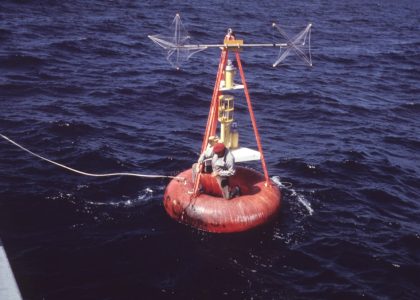The Museum of Science stands as a beacon of knowledge and curiosity, inviting visitors of all ages to explore the wonders of the natural world and the marvels of human ingenuity. Located in the heart of a bustling city, this institution is not merely a repository of artifacts; it is a vibrant hub where science comes alive through engaging exhibits and interactive experiences. From the moment one steps through its doors, the atmosphere buzzes with excitement, as families, students, and tourists alike embark on a journey of discovery.
The museum’s mission is clear: to inspire a love for science and technology while fostering an understanding of their relevance in our daily lives. This commitment to education is evident in every corner, from the meticulously curated displays to the enthusiastic staff who are always ready to share their knowledge. As visitors navigate through the museum’s expansive halls, they are greeted by a diverse array of exhibits that span various scientific disciplines.
Each section is thoughtfully designed to captivate the imagination and stimulate inquiry, encouraging guests to ask questions and seek answers. The Museum of Science serves as a vital resource for educators and students, providing a hands-on learning environment that complements traditional classroom experiences. With its emphasis on interactive learning, the museum not only showcases scientific principles but also empowers individuals to engage with them directly.
This unique approach transforms passive observation into active participation, making science accessible and enjoyable for everyone.
Key Takeaways
- The Museum of Science offers a fascinating exploration of science and technology for visitors of all ages.
- Visitors can engage in interactive exhibits and hands-on activities that make learning about science fun and engaging.
- The museum’s planetarium features stunning shows that transport visitors to the depths of space and time.
- The natural history collection showcases dinosaur fossils and other fascinating artifacts that bring the past to life.
- Special events and workshops cater to all ages, offering unique opportunities to delve deeper into the world of science.
Interactive Exhibits and Hands-On Activities
One of the most compelling features of the Museum of Science is its extensive collection of interactive exhibits and hands-on activities that invite visitors to immerse themselves in the scientific process. These exhibits are designed to engage the senses and spark curiosity, allowing guests to experiment, explore, and discover at their own pace. From physics demonstrations that illustrate fundamental principles to biology stations where one can examine the intricacies of life at a cellular level, each interactive display serves as a gateway to deeper understanding.
Children and adults alike can manipulate levers, spin wheels, and engage with digital interfaces, transforming abstract concepts into tangible experiences that resonate long after they leave the museum. Moreover, the museum frequently updates its exhibits to reflect current scientific advancements and societal challenges, ensuring that visitors are exposed to the latest developments in various fields. This dynamic approach not only keeps the content fresh but also encourages ongoing dialogue about science’s role in addressing contemporary issues such as climate change, health care, and technology ethics.
Special workshops and guided activities often accompany these exhibits, providing structured opportunities for learning and collaboration. Whether it’s building a simple machine or participating in a chemistry experiment, these hands-on activities foster teamwork and critical thinking skills, making science not just an individual pursuit but a collective endeavor.
The Planetarium and Its Stunning Shows

At the heart of the Museum of Science lies its magnificent planetarium, a state-of-the-art facility that transports visitors beyond the confines of Earth and into the vast expanse of the universe. With its cutting-edge projection technology and immersive sound systems, the planetarium offers stunning shows that captivate audiences with breathtaking visuals and compelling narratives. Each presentation is meticulously crafted to educate viewers about celestial phenomena, from the formation of stars to the mysteries of black holes.
The planetarium serves as both an educational tool and an artistic experience, blending science with storytelling in a way that resonates deeply with audiences of all ages. The programming at the planetarium is diverse, featuring everything from family-friendly shows designed for young children to more complex presentations aimed at adults and enthusiasts. Special events often include guest speakers from various fields of astronomy and astrophysics, providing insights into current research and discoveries.
These events not only enhance the educational experience but also foster a sense of community among those who share a passion for the cosmos. As visitors recline in their seats, gazing up at the simulated night sky, they are reminded of their place in the universe and inspired to ponder questions about existence, exploration, and the future of humanity among the stars.
The Natural History Collection and Dinosaur Fossils
| Category | Metrics |
|---|---|
| Number of Dinosaur Fossils | Over 1500 |
| Oldest Fossil | Approximately 230 million years old |
| Number of Specimens in Collection | Over 30 million |
| Number of Species Represented | Thousands |
The Natural History Collection at the Museum of Science is a treasure trove of specimens that tell the story of our planet’s past. Among its most celebrated attractions are the dinosaur fossils that capture the imagination of both young and old alike. These ancient remnants provide a tangible connection to a time when colossal creatures roamed the Earth, allowing visitors to marvel at their size and complexity.
The museum’s paleontological displays are not merely static exhibits; they are dynamic narratives that explore evolution, extinction, and the ongoing discoveries that continue to shape our understanding of prehistoric life. In addition to dinosaur fossils, the Natural History Collection encompasses a wide range of specimens from various ecosystems around the globe. From meticulously preserved insects to vibrant displays of flora and fauna, each exhibit offers insights into biodiversity and ecological interconnections.
Interactive elements within this section encourage visitors to engage with the material actively—whether through touchable specimens or digital interfaces that provide additional information about each display. This hands-on approach fosters an appreciation for nature’s intricacies while highlighting the importance of conservation efforts in preserving our planet’s rich biological heritage.
Special Events and Workshops for All Ages
The Museum of Science is not just a place for passive learning; it is a vibrant community hub that hosts a variety of special events and workshops designed to engage visitors of all ages. Throughout the year, the museum organizes themed events that coincide with scientific milestones or seasonal celebrations, offering unique opportunities for families to come together and explore science in a festive atmosphere. These events often feature guest speakers, live demonstrations, and interactive stations where participants can delve deeper into specific topics.
Whether it’s celebrating Earth Day with environmental workshops or hosting stargazing nights during astronomical events, there is always something exciting happening at the museum. Workshops are another integral part of the museum’s programming, providing hands-on learning experiences that cater to diverse interests and age groups. From robotics classes for aspiring engineers to art-science fusion workshops for creative minds, these sessions encourage participants to think critically while fostering collaboration and innovation.
The museum’s commitment to inclusivity ensures that everyone can find something that resonates with them—whether they are budding scientists or simply curious individuals eager to learn more about the world around them. By creating an environment where learning is fun and accessible, the Museum of Science cultivates a lifelong passion for exploration and discovery.
The Innovation and Technology Wing

The Innovation and Technology Wing of the Museum of Science stands as a testament to human creativity and ingenuity in addressing contemporary challenges through scientific advancements. This section showcases cutting-edge technologies that are shaping our future—from renewable energy solutions to advancements in artificial intelligence. Visitors can engage with interactive displays that highlight how these innovations work while also considering their implications for society at large.
By presenting technology not just as tools but as integral components of our daily lives, this wing encourages critical thinking about how we interact with these advancements. In addition to showcasing existing technologies, this wing also serves as an incubator for new ideas through collaborative projects and exhibitions featuring local inventors and entrepreneurs. Workshops often focus on design thinking and problem-solving methodologies, empowering participants to brainstorm solutions for real-world issues.
By fostering an environment where creativity meets practicality, the Innovation and Technology Wing inspires visitors to envision their roles in shaping tomorrow’s world. It emphasizes that science is not static; rather, it is an ever-evolving field driven by human curiosity and determination.
The Fascinating World of Science at the Museum
In conclusion, the Museum of Science offers an unparalleled opportunity for individuals to immerse themselves in the captivating world of science across various disciplines. From interactive exhibits that invite hands-on exploration to stunning planetarium shows that transport audiences into space, every aspect of this institution is designed to inspire curiosity and foster a love for learning. The Natural History Collection provides a glimpse into our planet’s past while special events and workshops create vibrant community experiences that engage visitors on multiple levels.
As we navigate an increasingly complex world filled with scientific advancements and technological innovations, institutions like the Museum of Science play a crucial role in bridging gaps between knowledge and understanding. They empower individuals to think critically about their surroundings while igniting passions that may lead to future discoveries. Ultimately, this museum stands as a testament to humanity’s quest for knowledge—a place where science is not just learned but experienced in all its fascinating forms.
If you’re interested in exploring more about the intersection of technology and education, particularly in the context of museums, you might find this article from the Museum of Science quite enlightening. It delves into how museums are leveraging technology to enhance educational experiences for visitors of all ages. For further reading, check out the article here. This piece provides insights into current trends and future directions in museum education, making it a valuable resource for educators, students, and museum enthusiasts alike.
FAQs
What is a museum of science?
A museum of science is a facility that houses a collection of scientific artifacts, exhibits, and interactive displays related to various fields of science, technology, engineering, and mathematics (STEM).
What can I expect to see at a museum of science?
Visitors to a museum of science can expect to see a wide range of exhibits and displays related to topics such as astronomy, biology, chemistry, physics, environmental science, and technology. These may include interactive experiments, hands-on activities, and educational demonstrations.
What are the benefits of visiting a museum of science?
Visiting a museum of science can provide educational opportunities for people of all ages, inspire curiosity and interest in science, and offer a deeper understanding of scientific concepts and discoveries. It can also be a fun and engaging way to learn about the world around us.
Are there different types of museums of science?
Yes, there are different types of museums of science, including general science museums, natural history museums, technology museums, and specialized science museums focused on specific fields such as space exploration, marine biology, or paleontology.
Are there any famous museums of science around the world?
Yes, there are several famous museums of science around the world, including the Smithsonian National Museum of Natural History in Washington, D.C., the Science Museum in London, the Exploratorium in San Francisco, and the Museum of Science and Industry in Chicago.





